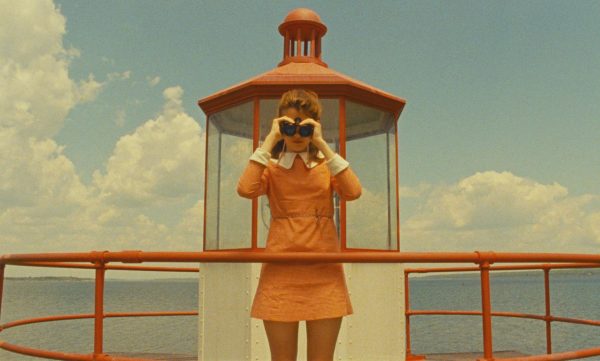I’m thinking of leaving a bad review
The recently released film “I’m Thinking of Ending Things” by director Charlie Kaufman got many mixed reviews due to its complexity and confusing plot. Kaufman is most famous for his hit films “Eternal Sunshine of the Spotless Mind” and “Being John Malkovich,” which got almost completely positive reviews despite their absurd and sometimes confusing natures. “I’m Thinking of Ending Things” stayed true to Kaufman’s style in that regard.
The difference between his past successes and his most recent release is just how much interpretation the latest takes. When considering this film, though, it becomes important to consider the possibility of its many metaphors crossing the line of too many. At a certain point a film is no longer a daring glimpse at the human condition, like Kaufman has been praised for doing so many times before, but rather an indulgence in the director’s desire to seem different. When that line is crossed, a movie then steps into the pretentious zone.
To define a film as pretentious, it almost always needs to be avant-garde in the first place. Pretension is all about creating something merely for the shock value, or to seem uncommonly unique or daring in the message it tries to convey. It is difficult for a traditionally structured movie to be labeled so, because it is obviously sticking to the classics of filmmaking. There may be some unique aspects here and there to a movie that follows the Hollywood paradigm, but they are overall telling the same type of story about life.
For a movie to be daring but at the same time avoid the “pretentious” label, it has to be made truly for the purpose of creating something new or tearing down walls in the art industry. Avant-garde cinema is all about rebelling against the norm for the sake of allowing more freedom in art, since art is the escape from reality for so many.
Though “I’m Thinking of Ending Things” has some brilliant lines and the plot is unique, the sheer perplexity of the movie was so much that it overpowered whatever was exceptional about it.
Without looking past the surface, the movie follows a couple on a trip to and from the boyfriend’s parents’ house. Underneath, though, almost every single thing in the film is symbolic or a metaphor for something deeper. This is admirable in the sense that it is something extremely difficult to pull off, though the movie in attempting this became so completely wrapped up in itself to the point of no return.
The movie is a textbook pretentious piece, whose goal was plainly and solely to be something totally different. After the two hour 15 minute run time of the movie, one is left rather unsure of what they have just seen due to the many weaving plotlines and how every time we thought we knew something, it changed. Being vague in itself is not necessarily a bad thing. It is crucial for directors to trust the intelligence of their audience when making art, so as to push their viewers to expand their frame of mind. This film, however, went overboard. When everything in a movie is symbolic, it becomes almost impossible to form clear ideas of what the story could be, since there is nothing to base one’s thoughts off of in the first place.
Kaufman’s “Eternal Sunshine of the Spotless Mind,” on the other hand, is a perfect example of doing something different in the movie industry without being too caught up in itself. The main idea the movie deals with is memory–how it affects us as people and defines who we are. Throughout the film the viewer has to unlock ideas and piece things together, which is rare in a world of movies that shove an idea down the viewer’s throat. The movie chases a lot of different directions and ideas which could easily have spun out of control. Though it could be confusing at times, the story held sturdy and in the end all the puzzle pieces came together, with a little thought. That is the main difference between this and Kaufman’s latest piece.
There needs to be an area in film between force-feeding the audience ideas and giving them zero context so that they are left doing all the work, which, unfortunately, “I’m Thinking of Ending Things” did. Kaufman’s desire to make something that was so beyond bizarre and unparagoned has finally caught up with him and left him with a film that is utterly pretentious in its seeking to be something it is not.













